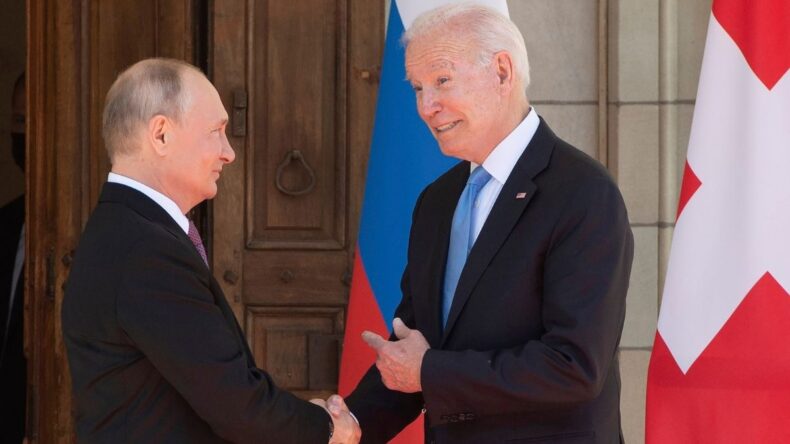In the Ukraine crisis, a battle of ideas is stymieing US policy
Stephen Wertheim, a fellow in the US Statecraft program at the Carnegie Endowment For International Peace.
On the appearance, Republicans have sounded remarkably cohesive during Vladimir Putin Putin’s months-long confrontation with the West.
Most politicians, officials, and media in the United States blame Putin for threatening aggression in Ukraine and firmly support response if he does so. Almost everyone also recognizes that confrontation with Russia, a large state and nuclear rival, is not an option.
However, when you look closely, you’ll notice that there’s a battle of ideas going on both inside and outside of US President Joe Biden‘s administration. Unusual positions are being taken by familiar camps, tugging Biden in opposite ways.
Ukraine Border Crisis
On the one hand, there are liberal internationalists, who generally prioritize soft power and multilateral diplomacy but now want harsh sanctions to keep Ukraine out of Russia’s clutches.
The realists are recognized for prescribing precisely that in the US debate: the power to balance power. On the other hand, Realists believe that no balance can be achieved in Ukraine, given Russia’s advantages.
They prefer a negotiated solution between Washington and Moscow that does not include the threat of action. Biden is stuck in the crossfire.
He demonstrates pragmatic, realist tendencies in negotiations to succeed and avert conflict. Still, he and his advisers do not appear to be following these instincts to their logical conclusion.
Now is the time to act decisively with the standoff threatening to escalate into a major European confrontation.
Liberal internationalism can take various forms, but it primarily advocates governments adopt laws and norms to control international relations and avoid war. When a state abuses the rules, liberal internationalists are torn between accommodating the violator’s concerns and punishing transgression by coercion.
Liberal internationalists prominent in the US policy debate are vacillating between these two viewpoints in the face of Putin’s threats but are increasingly leaning toward the latter.
They present Russia as a rogue dictatorship, but few people are willing to grasp the full ramifications of dealing with an all-out aggressor who can only be stopped by armed force.
NATO follows this line of reasoning
Ivo Daalder, president of the Chicago Council on Global Affairs and former US ambassador to NATO, followed this argument.
“Promising to halt NATO expansion or pull forces out of the east will not deter Putin,”
he argues.
Whatever drives Putin to be aggressive—Daalder says it’s Russia’s intolerance of its neighbors’ independence, others say it’s Putin’s fear of democracy, and others say it’s something else entirely—liberal internationalists argue that Putin’s Russia is destined to dominate Ukraine and push forward no matter what. If this is the case, diplomacy has a slim chance of averting conflict.
Even if diplomacy worked for a while, Putin could scarcely trust to follow through on any agreements he made. Michael McFaul, a former US ambassador to Russia, believes Putin’s successor will be more responsible.
However, allowing for the restoration of a rules-based order is unknown whether or when such a figure will arrive. Additionally, some integrationists believe that huge stakes are at risk in the current situation. At the very least, Putin is endangering
“fundamental aspects that we are committed to uphold and defend,”
this is According to Secretary of State Antony Blinken, including Ukraine’s sovereignty and territorial integrity, as well as states ability to choose their security arrangements and alliances.
Others go even further, believing that a new Russian invasion would upend Europe’s security, even though Ukraine is not a NATO member, and bring chaos throughout the continent.
In this regard, former NATO military chief retired US Navy Adm. James Stavridis argues that a Russian acquisition of Ukraine would “put the world system back decades.”
Former US Defense Department official Evelyn Farkas discusses that Russian successes in Ukraine could allow China a free hand invading Taiwan.
“The rules-based international order would collapse” if the world’s democracies prove impotent, she says.
Edited By- Kritika Kashyap
Published By- Satheesh Kumar













